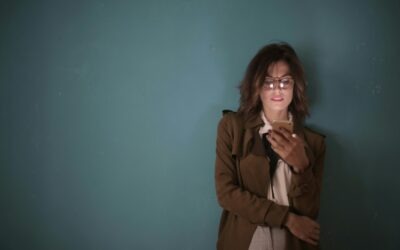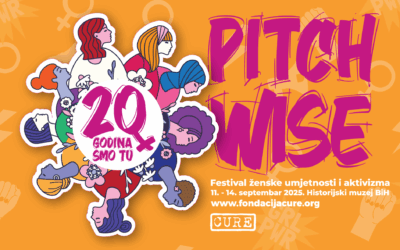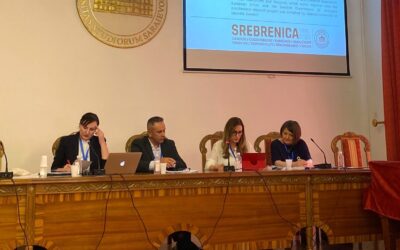The invited participants included about
twenty human rights activists, researchers, social workers and journalists from Bosnia and
Herzegovina, Croatia, Czech Republic, Italy, Hungary, Macedonia, Poland, Romania, Serbia and
Slovenia. Fondacija CURE attended the conference to show their support to ACP/CZA and its
regional initiative to foster the cooperation between different actors fighting for the respect of
basic human rights in their own countries.
On the first night, the participants were kindly invited to have dinner at the Réfuge social
bakery located in Novi Beograd and opened the initiative of ACP. At first sight, Réfuge looks like
any other Serbian bakery, attracting local customers thanks to an offer of traditional breads,
baked goods and healthy salads. However, this business is more special than other bakeries; it
is an entrepreneurial experiment aimed at improving the integration of refugees through the
Serbian labor market, teaching them practical and managerial skills. After an intercultural
dinner prepared by one of the employees, a young refugee member of ACP, Rados Djurovic,
ACP’s executive director, presented us the story of this recent initiative. He told us how
enthusiastic he was about the project: it is a great platform for integration and he would like to
expand it. In addition, Serbia is currently lacking workers willing to learn crafts skills such as
bakery. However, he highlighted that running this type of small businesses is a challenge, since
it requires managerial and more specific skills, such as knowledge about the machines to buy to
process the bread. His idea for now is to start small, and then try to expand the concept in
other areas of the cities. He also explained us why the bakery was not advertised as a social
project in the local community in order to prevent prejudices from the customers.
On Thursday 5, the conference officially started with a dynamic round table between all the
invited participants. During the round table, all the speakers took turns to portray the global
situation about migration in their own countries, through figures, facts and percentages of
asylum status granted. For example, the Bosnian delegation pointed out that about 50 000
refugees arrived in BiH since the beginning of 2018, but granted only about 12 asylum
protection status in 2019. Another telling example from the region was Serbia, who so far only
delivered 0.03% of asylum protection. Then, the day went on with a great variety of panels
about refugees’ success stories, prejudices about migrants in home cultures, or the specific
situation of unaccompanied minors and their need for psychological support. After that, the
participants could relax and mingle with refugees in Serbia while sharing a dinner cooked by
refugees. After that, APC screened a short movie about LBGTQ+ rights in Serbia directed by one
of its members.
On Friday, the conference closed on employment facilities for migrants in Serbia and with open
discussion between the international participant. All of them agreed on the fact that ACP
successfully gathered workers with different different backgrounds and working methods to
facilitate a productive and enriching exchange. Despite these differences, they managed to
share about their common interests for Human Rights and the integration of people on the
move. They all learnt a lot from each other, and agreed that safe spaces such as the Integration
Days are highly needed, in order to freely share experiences and knowledge about lobbying
governments, international organizations and the EU about migrants’ and refugees’ rights.



